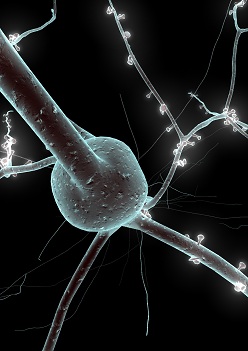In Upload, VR is experienced in small rooms called v-chambers, which use a mist or gel of nanobots, called nanomist, to suspend the user in space (which allows you to feel like you’re moving through a virtual landscape while you’re really just walking in place) and to provide haptic feedback. This morning, I read this article on Engadget about a PhD student who is using a Baxter robot as a crude macro version of the haptic feedback achieved via nanotech in a v-chamber. Pretty cool! (But if you want to explore some of the philosophical issues of VR taken to the extreme, you might enjoy my book.)
Category: Related Science
Ethics of Body-Hacking
Interesting article on the rise of body-hacking and the opening scenes of transhumanism: ‘Body Hacking’ Movement Rises Ahead of Moral Answers.
My gut says the philosophical findings of Alva Noë are dead wrong, at least as they’re quoted here. Reputable doctors and scientists will soon be openly embracing the opportunity to enhance people’s lives through cybernetic alterations. As will tattoo artists. 🙂
Alva Noë, a philosopher at the University of California, Berkeley and a contributor to NPR’s 13.7: Cosmos and Culture blog, has written extensively on what he calls “cyborgian naturalness.” He disagreed that the modern philosophers dropped the ball, saying that tackling the matter would involve unpacking two questions:
- Is it OK to cut into human bodies for these kinds of experiments?
- How much tolerance should society have for artificially enhancing the body?
To the first question, Noë said he found the “body hacking” experimentation on humans “ethically disturbing” and couldn’t fathom a doctor or any other scientists conducting these kinds of operations.
The Human Brain Project
 The Human Brain Project won one of two billion-Euro research grants from the European Union. Over the next ten years, it aims to create a complete computer simulation of the human brain.
The Human Brain Project won one of two billion-Euro research grants from the European Union. Over the next ten years, it aims to create a complete computer simulation of the human brain.
As the author of Upload, a thrilling sci-fi story about the first person to upload his consciousness into a computer, I’m keenly interested in this cutting-edge research into cognitive computing. It has the potential to bring futuristic technologies like those in Upload much closer. It also makes my fiction feel all the more relevant, as thought-leaders struggle with the possibilities and ethical implications surrounding simulation of the human mind.
There’s a pretty good introductory video up at the Human Brain Project’s website. Exciting stuff — check it out. And then read my book to help stir your imagination!